When you visit a dentist, you might wonder. Are they actually doctors? It is a common question, especially because people often link the word doctor with only medical physicians.
Yes, dentists are doctors because they hold a doctoral degree in dentistry and are licensed to diagnose and treat oral health issues.
Let’s break it in simple terms.
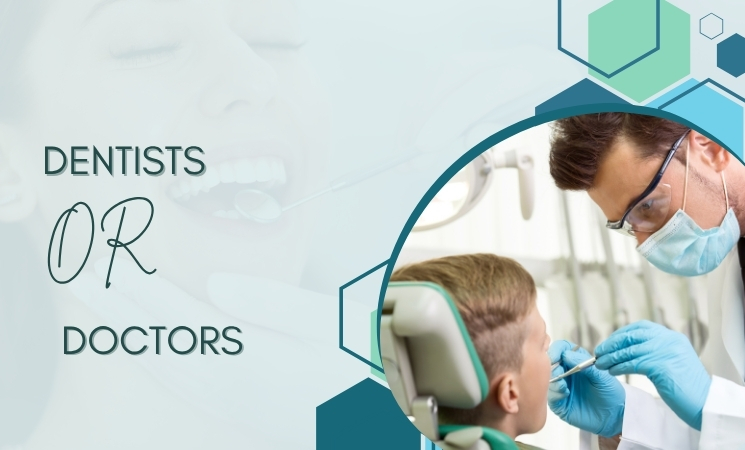
In today’s world, a doctor is someone who has earned a doctorate-level degree in a specific field. This includes:
- Medical doctors (MD)
- Dentists (DDS or DMD)
- Pharmacists (PharmD)
- Psychologists (PhD or PsyD)
- Professors or researchers with a PhD
A dentist who has earned a DDS (Doctor of Dental Surgery) or DMD (Doctor of Medicine in Dentistry) holds a doctoral degree. That makes them a doctor in both academic and professional terms.
What Do Dentists Study?
Becoming a dentist is not easy. Here is a general path:
- Four years of undergraduate study, often in sciences
- Dental school for four more years
- Extra years if they choose to specialize
Dental school covers subjects such as:
- Anatomy and physiology
- Oral health and disease
- Radiology and pathology
- Surgical procedures
- Pharmacology
- Patient care and ethics
Students also get hands-on training in clinics. They treat real patients under supervision. This practical experience is vital for becoming a safe and skilled dental provider.
DDS vs DMD — What’s the Difference
You might have seen two types of dental degrees: DDS and DMD. Do not let this confuse you.
They are the same. Both have identical training and education. The only difference is the name used by the dental school. Some universities grant a DDS. Others award a DMD. The American Dental Association confirms that they are equal in every way.
The important takeaway is that regardless of the initials, both a DDS and a DMD have the necessary qualifications to manage all aspects of your dental health, from routine preventative care like cleanings and dental checkups to advanced procedures like fitting crowns or placing dental implants. According to this trained dentist in San Antonio TX, the quality of their care depends on the individual dentist and their experience, not the letters after their name.
Are Dentists Medical Doctors?
No, dentists are not medical doctors. Their focus is different.
Think of it like this.
- A cardiologist is a doctor who focuses on the heart
- A dermatologist is a doctor who focuses on skin
- Dentist focuses on oral health
Each is a specialist in their own field. Each completes rigorous training. Each holds a doctorate.
Why Are People Confused About This?
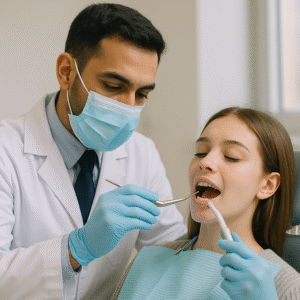
Much of the confusion comes from how society uses the word doctor. In many places, doctor is only used for someone in a white coat who treats your body, like a general physician.
But in the professional world, doctor applies to any expert who has completed a doctoral-level program in a health or academic field.
In a hospital, you may hear Dr. Smith, DDS. In a university, you might meet Dr. Ahmed, PhD.
Conclusion
Dentists go through years of education, earn a doctoral degree, and provide essential healthcare. They may not treat your entire body, but they play a vital role in keeping you healthy.
So next time someone asks, Are dentists doctors, you will know the answer. And it is a proud yes.
Why are dentists so expensive?
Dentists are so expensive because they use high-quality materials, advanced equipment, and require years of specialized training. You can read detailed article here.
Does nitrous oxide take away anxiety during dentists?
Yes, nitrous oxide helps reduce anxiety during dental visits. It creates a calm, relaxed feeling while keeping you awake and responsive.
Do dentists go to medical school?
No, dentists do not go to medical school. They attend dental school, which is a separate professional program focused on oral health.
Are dentists physicians?
Dentists are not considered physicians. They are doctors trained to treat the mouth, teeth, and gums, not the entire body.
What is DMD dentist?
DMD dentist holds the title Doctor of Medicine in Dentistry. It is the same degree as DDS, just a different name depending on the dental school.
How long does a clean at the dentist take?
Usually cleaning typically lasts 30 to 60 minutes, depending on the amount of plaque or tartar present on the teeth.
Can dentists tell if you vape?
Yes, dentists can often tell if you vape. Vaping can leave signs like dry mouth, inflamed gums, and staining.
Why don’t dentists use nitrous oxide anymore?
Some dentists do not use nitrous oxide anymore due to patient preference, equipment costs, or newer anxiety-reducing methods. But many still offer it.
Can dentist tell if you smoke weed?
Yes, a dentist may notice signs that suggest weed use. These can include dry mouth, increased cavities, or gum inflammation.






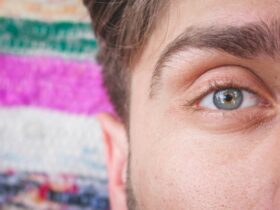
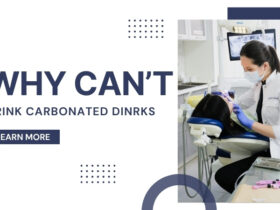





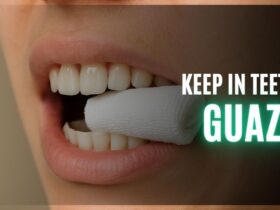


Leave a Reply